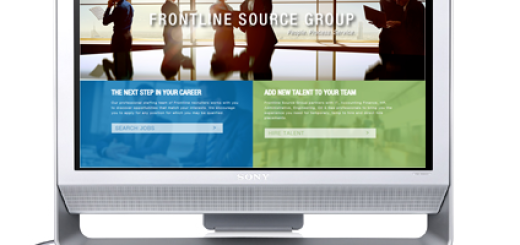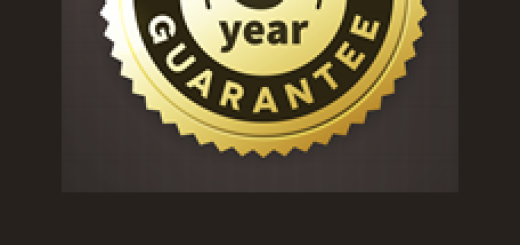Navigating the Tough Job Market: Hiring Pros
Navigating the Modern Job Market: A Comprehensive Guide Understanding the dynamic nature of employment trends is crucial to me as I explore the complexities of the contemporary job market. Recent years have seen a significant change in the landscape due to societal shifts, economic ups and downs, & technological advancements. Conventional ideas of job security and career paths have changed as a result of the gig economy and remote work.
Key Takeaways
- The current job market is competitive and requires a proactive approach to stand out to employers.
- Networking and leveraging connections can significantly increase your chances of landing a job in the current market.
- Tailoring your resume and cover letter to each job application is crucial for making a strong impression on employers.
- Interview preparation and best practices, such as researching the company and practicing common interview questions, are essential for success.
- Negotiating salary and benefits is an important step in the job search process and can significantly impact your overall job satisfaction.
Anyone hoping to land a job in today’s cutthroat market needs to be aware of these trends, I frequently remind myself. Also, it appears that different industries are dealing with different degrees of demand. Some industries, like retail and hospitality, have experienced severe difficulties, while the technology and healthcare sectors are flourishing. This discrepancy has motivated me to keep up with the industries that are prospering and those that are having difficulties.
I can better position myself for opportunities that match my interests & skill set by keeping an eye on these trends. Finding the correct job in a market that is always shifting is more important than simply finding a job. creating a brand for oneself. For me, developing a strong personal brand has taken precedence.
This entails maintaining my online presence, especially on sites like LinkedIn, where prospective employers frequently perform their preliminary evaluations, in addition to polishing my resume. Also, I’ve discovered that I can differentiate myself from other applicants by showcasing a sincere enthusiasm for the field. demonstrating a willingness to learn and enthusiasm. In addition to having the required credentials, employers are increasingly seeking candidates who are enthusiastic & eager to learn. I can demonstrate my dedication and proactive approach by taking part in pertinent projects or volunteering in my area of interest.
| Metrics | Data |
|---|---|
| Job Openings | 200 |
| Applicants | 500 |
| Interviews Conducted | 100 |
| Offers Extended | 50 |
| Offers Accepted | 30 |
This tactic not only improves my resume but also gives me insightful interview topics to talk about. Gaining a Competitive Advantage. I can gain an advantage in the job market by combining these tactics. To remain a strong candidate, I must constantly improve my abilities and keep abreast of market developments.
Also, I think that connecting with potential employers through my personality and values can help me succeed in the job market. Conclusion and Plans for the Future. Ultimately, it takes a combination of exhibiting distinctive abilities and experiences, developing a strong personal brand, and exhibiting zeal and a desire to learn to stand out in a competitive job market. As I proceed, I intend to keep improving my strategy, look for fresh chances to advance, and maintain my attention on my professional objectives. One of my most important job search tools now is networking.
Instead of traditional job postings, I’ve come to realize that a lot of opportunities come through personal connections. I can greatly grow my network by actively interacting with experts in my field, going to industry events, & taking part in online forums. Every encounter offers a chance to pick up knowledge from others and possibly find unannounced job openings. Also, I’ve come to realize how crucial it is to maintain these relationships over time.
Reaching out when I need something isn’t enough for me; I also try to establish sincere connections with my contacts. In order to do this, I must share pertinent articles or insights, offer help when I can, and maintain contact even when I’m not actively looking for work. By cultivating these connections, I establish a network of support that will be available to offer direction and recommendations when the time comes for me to look for new opportunities. Making my resume and cover letter unique for each job I apply for is one of the most important parts of my application process. Employers are unlikely to be interested in a generic application, I’ve realized.
Instead, I take the time to read over the job description & find the essential experiences and abilities that the employer is looking for. I can highlight pertinent accomplishments and show how I can benefit their organization with this focused approach. My goal when writing my cover letter is to weave a gripping tale that relates my experience to the goals and principles of the organization.
I not only improve my chances of being noticed but also demonstrate my sincere interest in the position & the company by personalizing each submission. I’ve turned interview preparation into an art form during my job search.
I’ve discovered that the secret to impressing possible employers is being well prepared. This entails investigating the company’s values, culture, and current market trends. I can adjust my answers to meet their expectations during the interview by becoming familiar with their mission and goals. Practicing standard interview questions has also been very helpful. I frequently rehearse my answers and build my confidence in expressing my experiences by doing practice interviews with mentors or friends.
In addition to helping me foresee questions, this practice enables me to craft succinct but powerful responses. Also, I’ve discovered how crucial it is to conclude the interview with well-considered questions, as this shows that I genuinely want the position and gives me a chance to determine whether the business is a good fit for me. recognizing industry standards. I can effectively advocate for myself if I am aware of what other people in comparable positions are making. I’ve also discovered that negotiating covers benefits like health insurance, retirement plans, and flexible work schedules in addition to pay.
Putting Up a Strong Argument. When talking about these points, I want to make a strong argument that demonstrates how my qualifications and experiences support my requests. I can prove to the employer my worth using this strategy, which also demonstrates my familiarity with industry norms. Strategies for Successful Negotiation.
In order to build a good rapport with my future employer right away, I must approach negotiations as a cooperative discussion rather than a combative one. establishing a constructive relationship. I can lay the groundwork for a fruitful and reciprocal working relationship by adopting this mindset, which is essential to both my development and the success of the business.
For me, as a job seeker, the popularity of remote work has created a plethora of opportunities. Nowadays, a lot of businesses provide flexible work schedules, which enables me to look into opportunities outside of my immediate area. This change has greatly increased my options, allowing me to apply for jobs with companies that share my values and professional objectives, no matter where they are located. Nevertheless, managing remote work opportunities presents a unique set of difficulties.
I’ve discovered that it’s critical to convey my capacity for independent work & time management during the application process. Emphasizing any prior remote work experience or pertinent abilities, like mastery of digital collaboration tools, can reassure employers of my capacity to succeed in a remote setting. To further demonstrate my preparedness for this changing workplace, I highlight in interviews my flexibility & openness to embracing new technologies. Staying competitive in the fast-paced job market of today requires constant learning. Finding professional development opportunities that fit with my career goals has become a top priority for me.
Investing in my skills has been crucial in increasing my employability, whether it is through taking online courses, going to workshops, or earning industry-relevant certifications. Also, I’ve found that a lot of employers respect applicants who show a dedication to lifelong learning. By actively seeking opportunities for professional growth, I not only increase my knowledge but also show prospective employers that I am committed to developing in my field. In addition to boosting my confidence, this proactive approach gives me the tools I need to adjust to the shifting demands of the industry.
This approach includes knowing current trends, making an impression on employers, utilizing connections, customizing applications, getting ready for interviews, negotiating skillfully, accepting remote opportunities, and deciding to continue developing professionally. By implementing these tactics, I feel equipped to take control of my professional path and set myself up for success in a constantly changing environment.
In a tough job market, hiring professionals can face many challenges. One article that provides valuable insights into this topic is “Day 3: CEO Undercover Uber Project”. This article discusses the experiences of a CEO going undercover to gain a better understanding of the hiring process and the challenges faced by job seekers. It offers valuable lessons for hiring professionals looking to navigate a competitive job market.
FAQs
What are the challenges of hiring professionals in a tough market?
In a tough market, there is increased competition for top talent, limited candidate pool, and higher salary expectations from candidates.
How can companies attract professionals in a tough market?
Companies can attract professionals in a tough market by offering competitive salaries, flexible work arrangements, opportunities for career growth, and a positive company culture.
What strategies can companies use to hire professionals in a tough market?
Companies can use strategies such as leveraging their employer brand, utilizing employee referrals, partnering with recruitment agencies, and offering attractive benefits packages to hire professionals in a tough market.
What industries are most affected by hiring challenges in a tough market?
Industries such as technology, healthcare, finance, and engineering are often most affected by hiring challenges in a tough market due to the high demand for skilled professionals in these fields.
How can professionals stand out in a tough job market?
Professionals can stand out in a tough job market by showcasing their unique skills and experiences, networking effectively, and staying updated on industry trends and developments.


